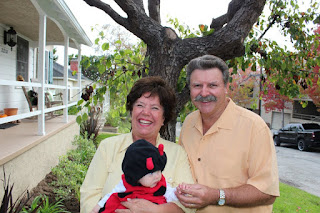Paper cups have been documented in imperial China, where paper was invented by 2nd century BC. Paper cups were known as chih pei and were used for the serving of tea. They were constructed in different sizes and colors, and were adorned with decorative designs. Textual evidence of paper cups appears in a description of the possessions of the Yu family, from the city of Hangzhou.
The modern paper cup was developed in the 20th century. In the early 20th century, it was common to have shared glasses or dippers at water sources such as school faucets or water barrels in trains. This shared use caused public health concerns. One notable investigation into their use was the study by Alvin Davison, biology professor at Lafayette College, published with the sensational title "Death in School Drinking Cups" in Technical World Magazine in August 1908, based on research carried out in Easton, Pennsylvania's public schools. The article was reprinted and distributed by the Massachusetts State Board of Health in November 1909.
Based on these concerns, and as paper goods (especially after the 1908 invention of the Dixie Cup) became cheaply and cleanly available, local bans were passed on the shared-use cup. One of the first railway companies to use disposable paper cups was the Lackawanna Railroad, which began using them in 1909. By 1917, the public glass had disappeared from railway carriages, replaced by paper cups even in jurisdictions where public glasses had yet to be banned.
Paper cups are also employed in hospitals for health reasons. In 1942 the Massachusetts State College found in one study that the cost of using washable glasses, re-used after being sanitized, was 1.6 times the cost of using single-service paper cups. These studies, as well as the reduction in the risk of cross-infection, encouraged the use of paper cups in hospitals.
The base paper for paper cups is called "cup board", and is made on special multi-ply paper machines. It has a barrier coating for waterproofing. The paper needs high stiffness and strong wet sizing. The cup board grade has a special design for the cup manufacturing processes. The mouth roll forming process requires good elongation properties of the board and the plastic coating. A well formed mouth roll provides stiffness and handling properties in the cup. The basis weights of the cup boards are 170–350 g/m2.
To meet hygiene requirements, paper cups are generally manufactured from virgin (non-recycled) materials. The one exception to this is when the paper cup features an extra insulating layer for heat retention, which never comes into contact with the beverage, such as a corrugated layer wrapped around a single-wall cup.
If you want to read a lot more, go here:
https://en.wikipedia.org/wiki/Paper_cup
Louisiana really knows how to party during Mardi Gras, so of course we came up with a recipe that's just as festively flavorful to go with the occasion! Our Mardi Gras Popcorn Chicken is coated in a great Cajun seasoning mix that we know will have you celebrating!
- 1 1/4 cups all-purpose flour
- 1 teaspoon Cajun seasoning
- 1/2 teaspoon paprika
- 1 1/2 teaspoons salt
- 1 teaspoon black pepper
- 2 eggs
- 1 cup vegetable oil
- 2 boneless, skinless chicken breasts, cut into 1-inch pieces
- In a large resealable plastic bag, combine flour, Cajun seasoning, paprika, salt, and pepper; mix well and set aside.
- In a medium bowl, lightly beat eggs.
- In a medium saucepan over medium heat, heat oil until hot but not smoking.
- Place about 1/4 of the chicken pieces into flour mixture and shake until evenly coated. Place chicken in egg, remove with slotted spoon, and place back into flour mixture, shaking until all chicken pieces are evenly coated.
- Place chicken in hot oil and fry 3 to 4 minutes, or until light golden brown, and chicken is no longer pink in center. Remove to a paper towel-lined platter. Repeat with remaining chicken.
And births this date include..
1921 – Jane Russell, American actress (d. 2011)
1933 – Bernie Kopell, American actor
1938 – Ron Ely , American actor
On the longest day of the year, Summer Begins in the Northern Hemisphere. It is also known as the Summer Solstice, which happens either on June 20th, 21st, or 22nd. It all depends on the time zone in which you live.
With the Summer Solstice, the astronomical calendar marks the first day of summer as the Earth’s axis is pointed toward the sun. It’s rays more directly impact the Northern Hemisphere giving us more daylight and more warmth. It’s a time when plants grow rapidly and animals are more active. That includes humans.
Many schools are out of session during the summer which gives families the opportunity to take vacations. Even those without children take time to explore the outdoors through camping, hiking, and biking. Community pools open, inviting everyone to cool off on hot summer days. The beaches are open, too. Water adventures in the form of kayaking, canoeing, skiing, and fishing entice us to the rivers and lakes.
Gardners and farmers spend time cultivating their bounty and watching the skies for foul weather. And speaking of fouls – baseball, softball, and soccer teams take the field with cheering fans in every color of the rainbow.
There’s so much to do during the summer, we try to pack it all in over weekends and short breaks. But it never seems to be enough time. Before we know it, summer is over. Though, it’s only just begun.
HOW TO OBSERVE SUMMER BEGINS
There are so many ways to enjoy the beginning of summer! Whether you spend the day hiking, reading a good book on the beach or grilling some burgers, the important thing is that you celebrate summer. Spend some time outside in the fresh air. Take a long walk and visit a local park.
SUMMER BEGINS HISTORY
Since ancient times, the summer solstice has been marked on calendars with celebrations honoring the sun and as a way to mark the seasons.














2 comments:
Happy Summer Solstice!
Lydia
Happy first day of summer! Carol Herrera was born on this date, the longest day of the year. Her first born daughter, Lisa, was born on the shortest day of the year, December 21. :)
XO Trisha
Post a Comment